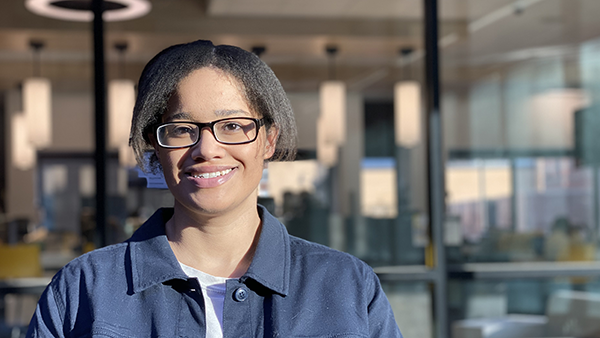Guest Post: Coping Strategies That Help Me Get Back to the Grind

Jacqueline Harris
A good friend of mine owns horses. She once shared of the difficult time she had saddling her horse after she’d foaled. My friend showed our group a picture of her finally saddled up. I know little about horses. But I can say I have never seen such an angry horse in my life.
My sister commented, “Going back to work after maternity leave? I feel her struggle.” The comment shifted the atmosphere from humorous to commiseration. We understood because at some point we had all experienced it, that return to work or school after a long break. Especially when starting a new semester, there are so many complicated emotions: excitement, fear, stress. It can be even harder if you are like me and have ADHD, major depression, anxiety disorder. Over the years, I have found several coping strategies that have helped me get back to the grind.
The first thing I would recommend to anybody is SLEEP, SLEEP, SLEEP. This seems like a no-brainer and yet many adults, particularly college students, wander around in a haze of exhaustion. Returning to work and school means needing to get back on a good sleep cycle as soon as possible.
I am an Army veteran. The goal of basic training is to break you down, so they could build you back up. Minor sleep deprivation was one tool they used. They had to be careful though; almost every cycle they had someone break and end up on suicide watch. The mental, emotional, and physical exhaustion took its toll. Severe lack of sleep is even listed as torture. So we really need to stop doing this to ourselves.
Still, many of us feel we just don’t have the time to sleep. We have too many things to do and stress sometimes keeps us up. With my ADHD, I struggle with insomnia because my brain just doesn’t want to stop thinking about what I need to do tomorrow. The beginning of a semester and finals are usually the worst times for me. The two things that really get me through are a planner and a journal.
In starting school and returning to work, the first thing we need to do is plan and write down all our worries, thoughts, and fears, and tasks. Again, this is something we all know works well, but many of us don’t use. As I write all my feelings and thoughts out on paper, all my worries disappear from my head. The stress relief is almost instant.
I used my first planners in middle school. We had to write our homework down and get it signed by our parents. This was to give us needed structure. As an adult we have to create our own structure to take charge of our lives, and to remember all the tasks we need to do.
Last, everyone needs to take stock of their mental state. Any change in life, even just a change in schedule, can cause extreme discord. If you find yourself overwhelmed, if you can’t bring order to your life no matter how much you try, then there may be a deeper underlying issue.
Utah State provides many resources to assist with disabilities and mental health of all kinds. I would also recommend that every student familiarize themselves with CAPSA and the DRC. There is also tutoring and other academic help available.
I am a returning non-traditional student. When I was younger, I withdrew from BYUl for personal family reasons, but largely I couldn’t cope with my ADHD and the resulting mental health that came with it. My previous school had these tools, but I didn’t understand my condition and I was too proud to admit I needed help. Many of you will also find yourselves developing mental health struggles at this time in your life. It can feel limiting and overwhelming, but it doesn’t have to stop you from giving your best selves in school and in your jobs. We can reach our personal goals and be successful. We just need to find the tools and coping strategies that work for us.
Jacqueline Harris is Bi-racial, a nontraditional student, a writer and a veteran. She is pursuing a degree in Psychology, and a minor in English with an emphasis in creative writing. She’s from Illinois and comes from a big family.

